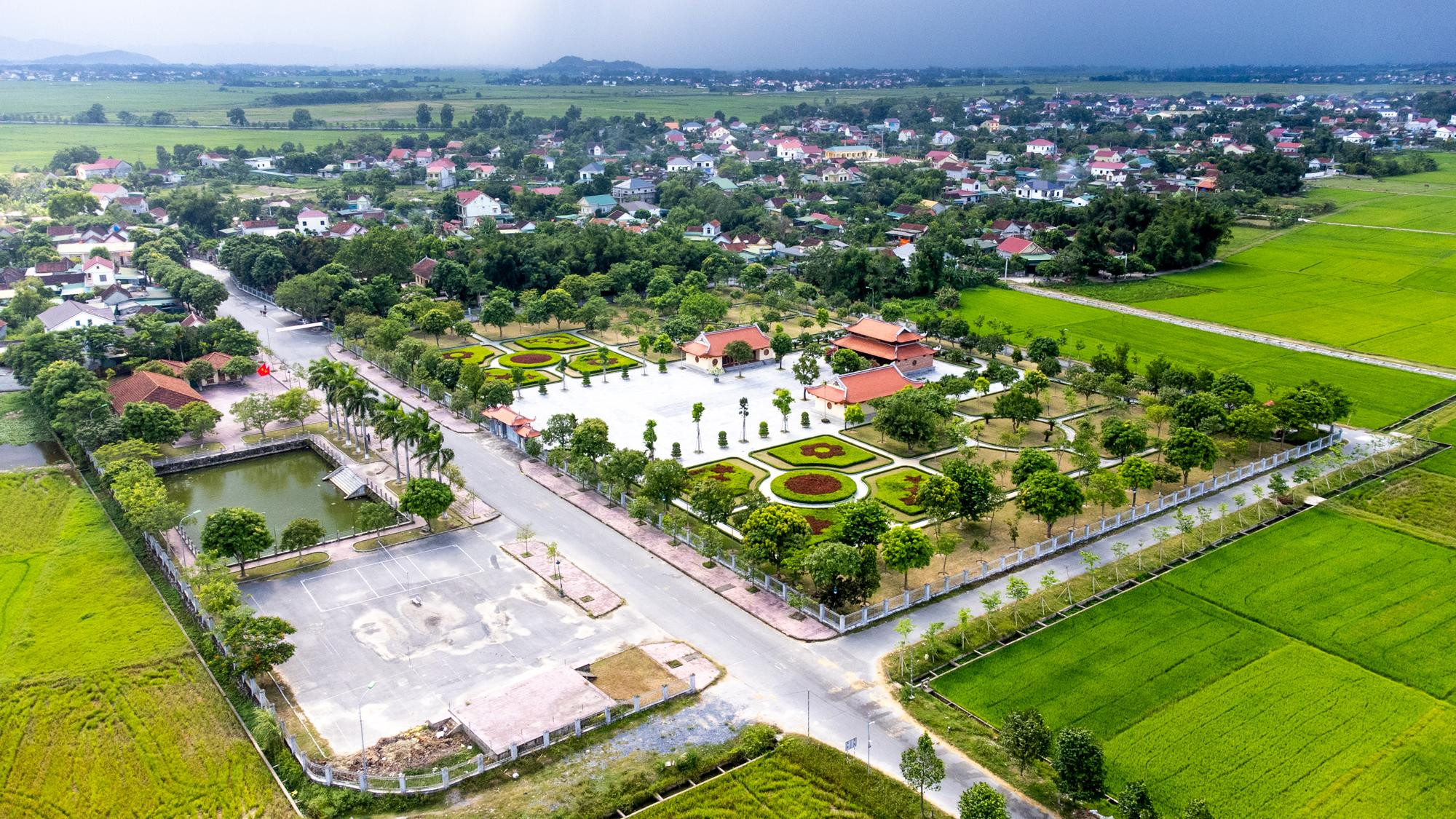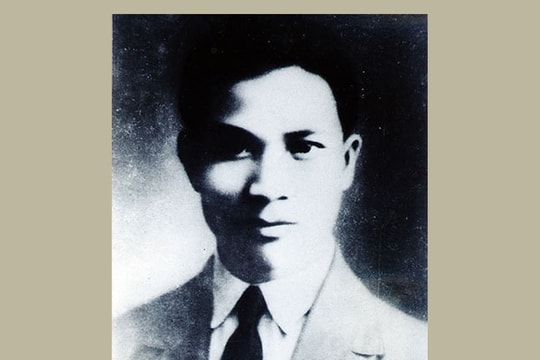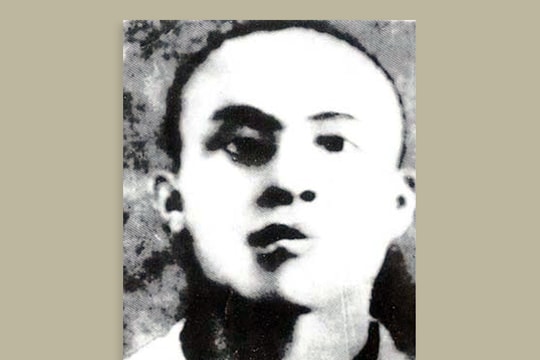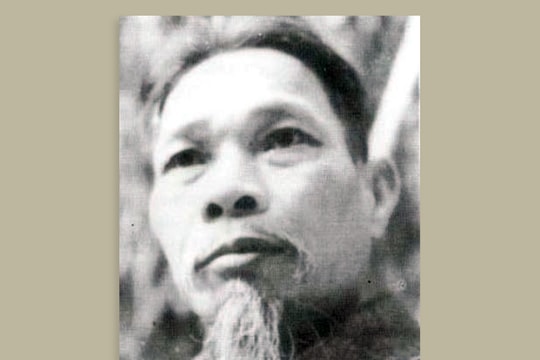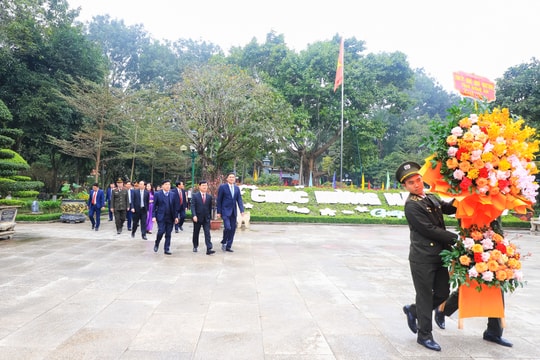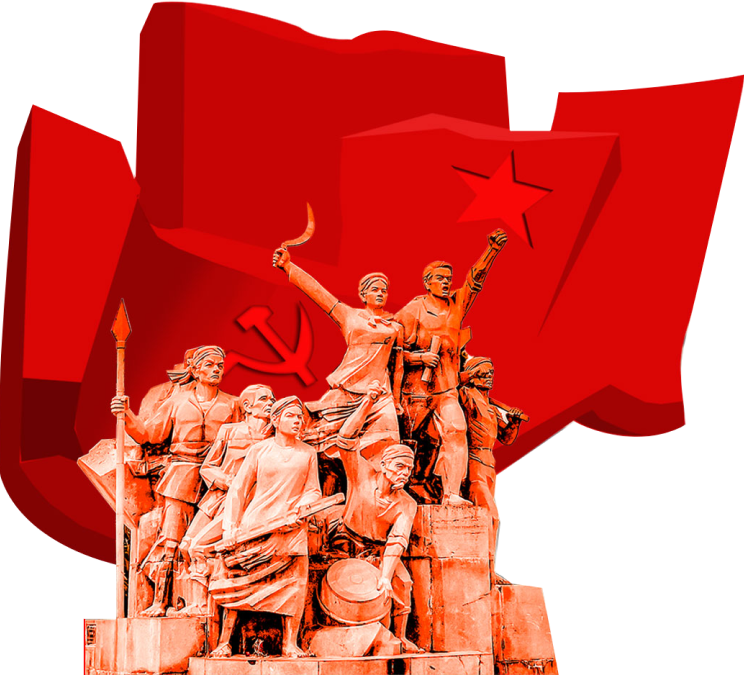General Secretary Le Hong Phong - A staunch communist, a talented leader of the Communist Party of Vietnam
With 40 years of age and more than 20 years of revolutionary activities, comrade Le Hong Phong is an outstanding leader of our Party, State and People; an excellent student of President Ho Chi Minh; a steadfast soldier of the international communist and workers' movement; an outstanding son of his homeland Nghe An.
Le Hong Phong's real name is Le Huy Doan, born in 1902, in Dong Thon village, Thong Lang commune (now Hung Thong commune), Hung Nguyen district, Nghe An province.
His father was Le Huy Quan, his mother was Phan Thi San. From the age of 8 to 15, Le Huy Doan studied Chinese characters at the village school, then studied French for about 2 years. His father died early, his mother had to raise him alone, he applied to work as a worker at the Ben Thuy Match Factory with Pham Hong Thai. Both of them actively participated in the struggle against the employer's oppression of workers and were fired by the owner of the Match Factory.
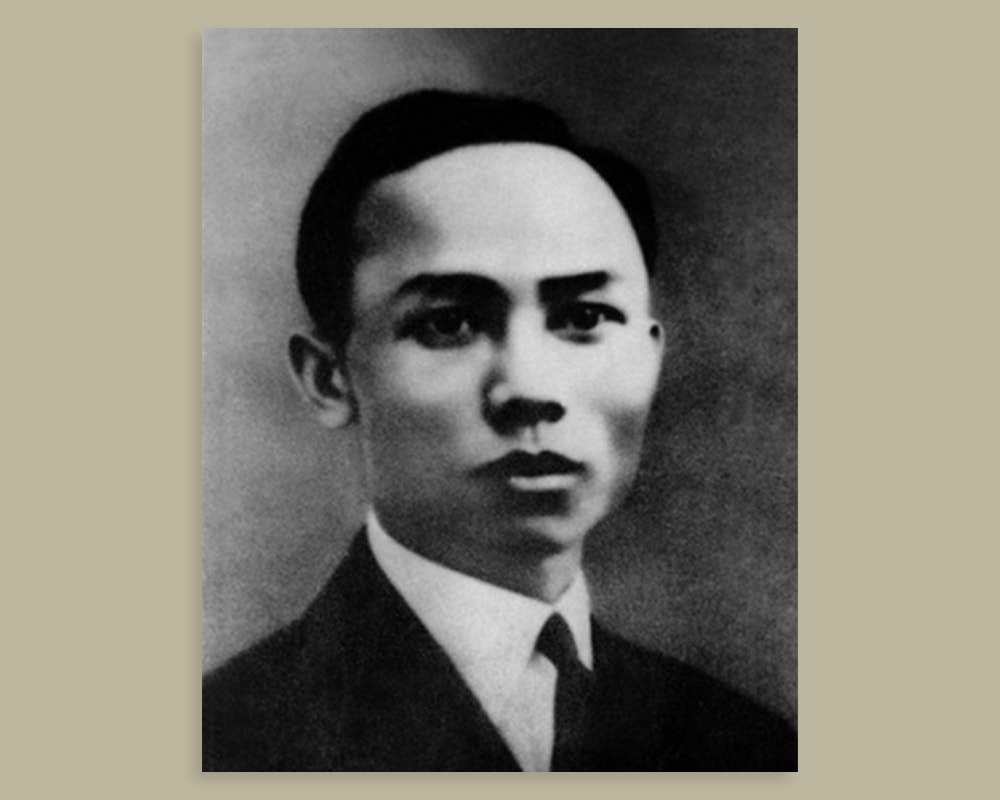
In 1920-1923, the movement to send Nghe An youth to Siam was quite strong through the base of Ngoet Dai (Vo Trong Dai, from Phu Xa village). In early 1924, Le Huy Doan and Pham Hong Thai, along with a number of young people in the region, crossed the forest to Siam. Upon arriving in Siam, Dang Thuc Hua introduced him to Guangzhou (China). In Guangzhou, he and Pham Hong Thai were accepted by Ho Tung Mau and Le Hong Son and organized Tam Tam Xa.
On June 19, 1924, Le Hong Phong and Le Hong Son were assigned to assist Pham Hong Thai in going to the Victoria Hotel in Sa Dien (Guangzhou) to throw bombs and attempt to kill Merlin (Governor General of Indochina) while he was on his way to Japan and stopped in Guangzhou. After completing the mission, surrounded by the police, Pham Hong Thai had to jump into the Pearl River and sacrificed himself.
In August 1924, Le Hong Phong and several other young men were introduced by Tam Tam Xa to study at Hoang Pho Military School.
At the end of 1924, comrade Nguyen Ai Quoc went to Guangzhou to meet with Tam Tam Xa and patriotic youths there. Le Hong Phong was one of nine outstanding youths admitted by Nguyen Ai Quoc to the "Communist League". In June 1925, Nguyen Ai Quoc founded the Vietnam Revolutionary Youth Association and opened a political training class to bring cadres back to the country. Le Hong Phong became his student.
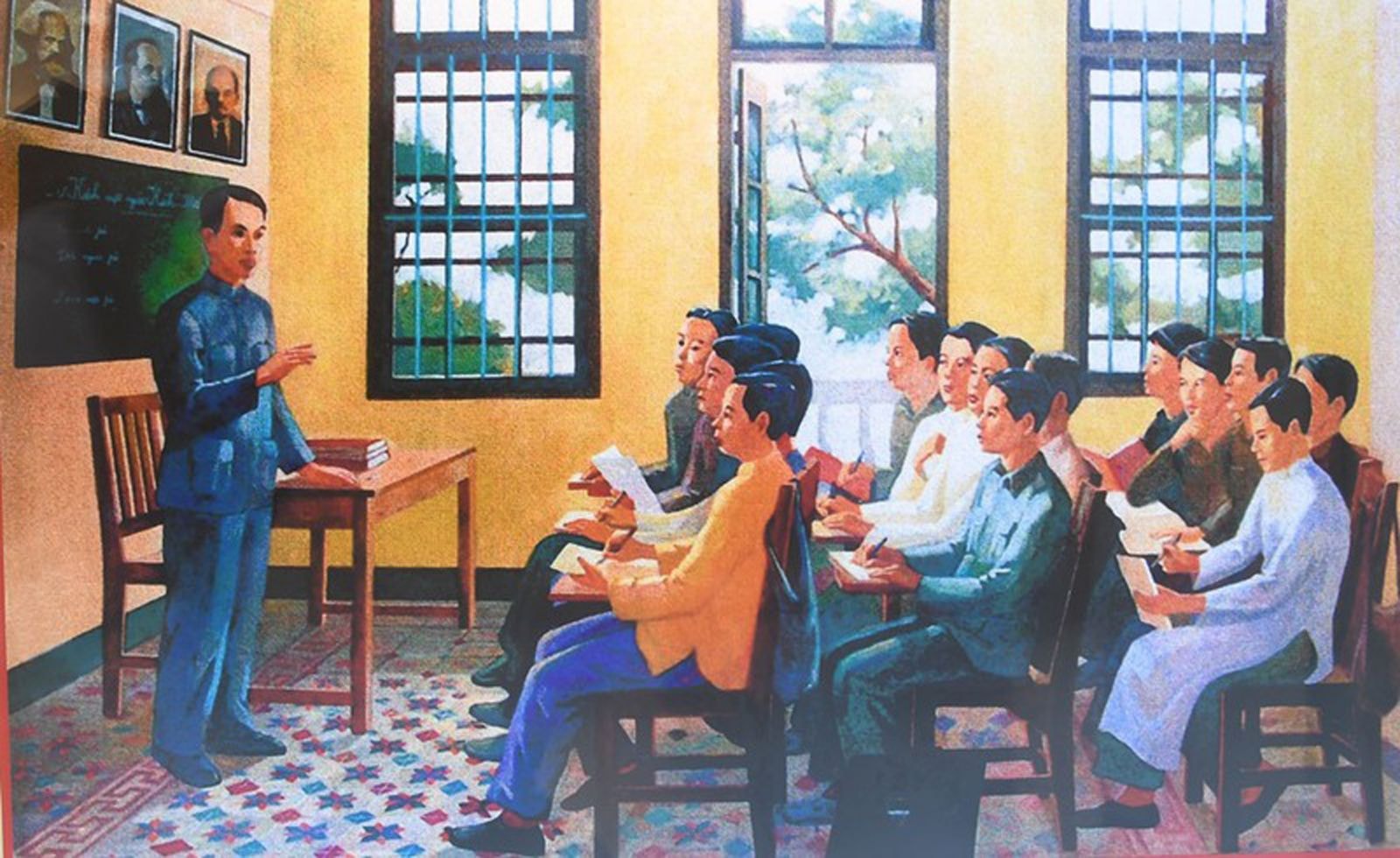
After studying at Whampoa School for 1 year, Le Hong Phong was sent to study at Guangzhou Air Force School and he was admitted to the Communist Party of China. In August 1927, the Communist Party of China requested 10 young volunteers from this school to study at the Soviet Air Force School. Le Hong Phong volunteered to go to Russia to learn to fly airplanes. After 1 year studying at the Air Force Military Theory School in Leningrad, he went to study at the Military Pilot Training School in Borisglevsk for 1 year. After graduating from the flight training course, Le Hong Phong continued to study at the Oriental University in Moscow and joined the Russian Bolshevik Communist Party.
At the end of 1931, Le Hong Phong returned to China to contact Vietnamese cadres abroad such as Hoang Dinh Giong, Hoang Van Thu... Established the Party's provisional Central Executive Committee and drafted the Party's action program.
In March 1934, the External Command Committee was established, including Ha Huy Tap and Nguyen Van Dut, with comrade Le Hong Phong as General Secretary. Later, other comrades such as Phung Chi Kien were added. The External Command Committee of the Party was like the provisional Central Executive Committee and was recognized by the Communist International, clearly defining its functions and tasks.
In late 1934 and early 1935, the Northern, Central and Southern Regional Committees were re-established. Faced with this situation, the Command Committee outside decided to convene the First Congress of the Indochinese Communist Party.
The Congress met from March 27 to 31, 1935 in Macau (China) chaired by comrade Ha Huy Tap. The Congress elected the Central Executive Committee with comrade Le Hong Phong as General Secretary. At that time, comrade Le Hong Phong was the Head of the Delegation attending the 7th Congress of the Communist International.
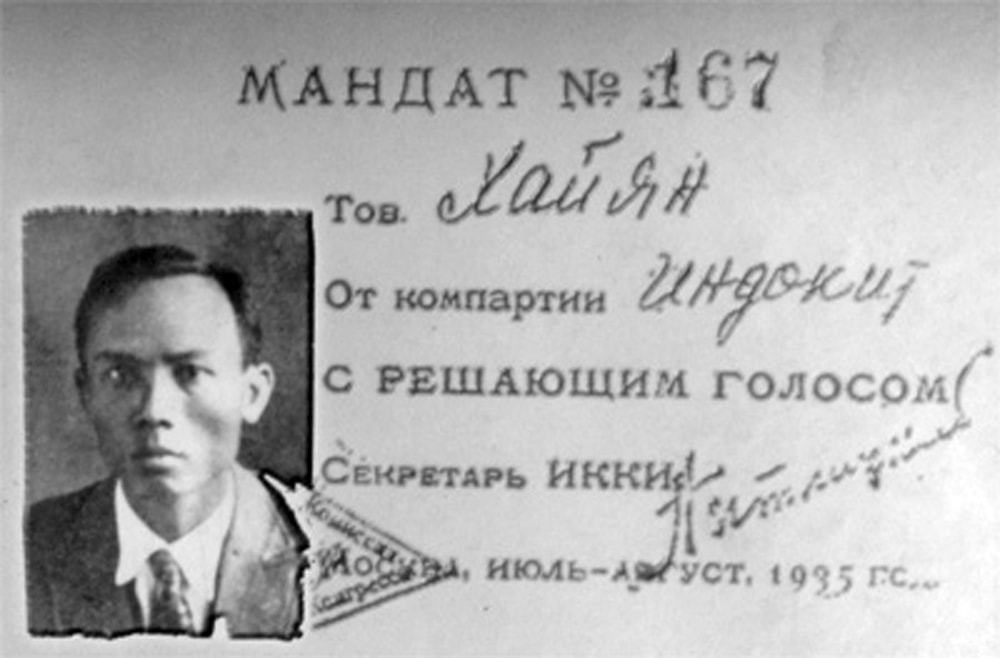
In July 1935, Le Hong Phong was elected by the Communist International Congress as an official member of the Communist International Executive Committee. During his time attending the Congress, comrade Le Hong Phong married comrade Nguyen Thi Minh Khai, an outstanding cadre overseas.
After the Congress, comrade Le Hong Phong returned to China to work as a delegate of the Communist International alongside the Communist Party of Vietnam.
On July 26, 1936, comrade Le Hong Phong and comrade Ha Huy Tap convened a Party Central Committee meeting in Shanghai (China) to disseminate the Resolution of the 7th Congress of the Communist International. The conference elected comrade Ha Huy Tap as General Secretary and returned to the country to reorganize the Central Committee.
In November 1937, comrade Le Hong Phong returned to Saigon to direct revolutionary activities. On March 29, 1939, he attended the Party Central Committee Conference held in Hoc Mon, Gia Dinh. On June 22, 1939, comrade Le Hong Phong was arrested for "carrying a fake identity card" and was sentenced by the Saigon Court to 6 months in prison and 3 years of house arrest. After his prison term, he was deported to his hometown and placed under house arrest.
In February 1940, comrade Le Hong Phong was arrested by the French colonialists for the second time and imprisoned in Saigon's Grand Prison. This time, the Saigon Court sentenced him to 5 years in prison and exiled him to Con Dao. Knowing that Le Hong Phong was an important figure in the Indochinese Communist Party, the French colonialists tried every way to kill him. They tortured him brutally and locked him in a dark cell. His health gradually deteriorated. On September 5, 1942, comrade Le Hong Phong died in solitary confinement cell, Ward III, Con Dao.
